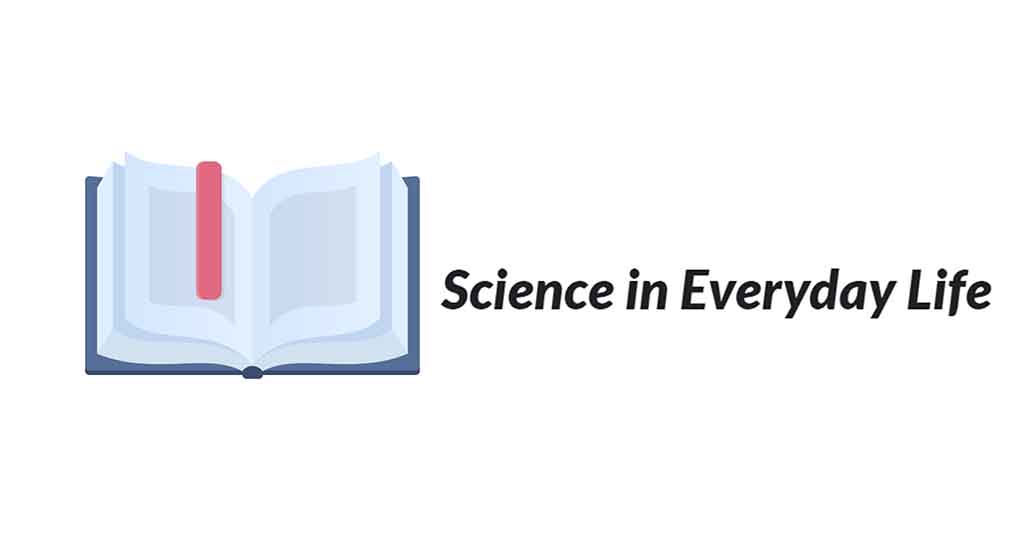Science in Everyday Life Composition for ssc, hsc exam

Science in Everyday Life Composition for SSC Exam
Science is an integral part of our lives, and its impact can be seen in every aspect of our daily routine. From the food we eat to the clothes we wear, science plays a crucial role in shaping our lives. In this composition, we will explore the various ways science affects our everyday life.
Food and Nutrition
Science plays an important role in the production and processing of food. From the use of fertilizers and pesticides to improve crop yields to the use of preservatives and additives to increase shelf life, science has revolutionized the food industry. The nutritional value of our food has also improved significantly, thanks to scientific advancements in understanding the role of vitamins, minerals, and other nutrients in our bodies.
Transportation
Science has transformed the way we travel. From airplanes and cars to trains and ships, scientific innovations have made transportation faster, safer, and more efficient. Advancements in material science have enabled the development of lightweight, high-strength materials that are used in the construction of vehicles, making them more fuel-efficient and environmentally friendly.
Communication
Science has revolutionized communication, making it faster, cheaper, and more accessible than ever before. The invention of the telephone, the internet, and mobile phones has transformed the way we communicate with each other. These technologies have also made it possible for people to work and collaborate from different parts of the world, leading to significant advancements in various fields.
Medicine
Science has revolutionized medicine, leading to significant advancements in the prevention, diagnosis, and treatment of diseases. From vaccines and antibiotics to diagnostic tests and surgical procedures, science has saved countless lives and improved the quality of life for millions of people around the world. The use of genetic engineering and stem cell technology has also opened up new avenues for personalized medicine and regenerative therapies.
Energy
Science has played a crucial role in meeting the growing demand for energy. From the use of fossil fuels to renewable energy sources such as solar, wind, and hydropower, scientific innovations have enabled the production of energy on a large scale. These advancements have not only made energy more affordable and accessible but have also reduced the environmental impact of energy production.
Entertainment
Science has transformed the entertainment industry, providing us with new forms of entertainment and media. From virtual reality and 3D movies to video games and social media, science has provided us with new ways to interact and engage with each other. These technologies have also led to the development of new forms of art, music, and literature, providing us with endless opportunities for creativity and self-expression.
Environment
Science has played a crucial role in understanding and addressing environmental issues. Scientific research has enabled us to understand the impact of human activities on the environment and develop solutions to reduce our environmental footprint. From recycling and waste management to renewable energy and conservation efforts, science has provided us with the tools and knowledge to protect the planet for future generations.
In conclusion, science is an essential part of our daily lives, impacting every aspect of our routine. Its contributions are immense, from providing us with essential necessities like food and energy to improving our health and well-being. Scientific innovations have also transformed the way we live, work, and interact with each other, providing us with endless opportunities for growth and development. Therefore, it is essential to continue to support and invest in scientific research and development to further advance and improve our lives and the world we live in.
Science in Everyday Life Composition for HSC Exam
Science is all around us, impacting every aspect of our daily lives, from the food we eat to the clothes we wear. Science has made significant contributions to our understanding of the natural world, leading to significant advancements in various fields.
One of the most significant contributions of science to food production is the use of fertilizers and pesticides to improve crop yields. Fertilizers provide essential nutrients to the soil, which plants need to grow, while pesticides protect crops from pests and diseases, reducing losses and increasing yields. Science has revolutionized the food industry, enabling the production and processing of food on a large scale.
Science has also played a critical role in the development of new food products. For example, plant-based meat substitutes are becoming increasingly popular, made using a combination of plant-based proteins, fats, and other ingredients that closely resemble the texture and taste of real meat. These products are not only more environmentally friendly than traditional meat products but are also more sustainable and healthier.
Advances in nutritional science have helped us understand the role of vitamins, minerals, and other nutrients in our bodies, leading to the development of fortified foods that provide essential nutrients to populations with inadequate diets. For example, iodized salt contains the mineral iodine, which is essential for the development of the brain and nervous system, and the fortification of wheat flour with iron and other essential vitamins and minerals has helped reduce anemia in many populations. Science has also enabled significant improvements in the nutritional value of our food.
Science has transformed the way we travel, making transportation faster, safer, and more efficient. One of the most significant contributions of science to transportation is the development of fuel-efficient engines, which reduce emissions and improve fuel economy. This has led to significant reductions in air pollution and greenhouse gas emissions, making our cities and towns cleaner and healthier places to live.
Advances in materials science and engineering have also led to significant improvements in transportation. For example, the development of lightweight and durable materials, such as carbon fiber and titanium, has led to significant improvements in aircraft and automobile design, improving their safety and efficiency.
Science has also impacted the way we communicate and access information. The development of the internet and mobile technologies has revolutionized the way we interact with each other and access information, leading to significant advancements in fields such as medicine, education, and entertainment.
Medical science has also made significant contributions to our daily lives, leading to improved health and quality of life. Advances in medical research and technology have led to the development of new drugs, medical devices, and treatments that have saved countless lives and improved the health outcomes of millions of people worldwide.
Science has also played a critical role in the development of renewable energy sources, such as solar, wind, and hydroelectric power. These sources of energy are cleaner and more sustainable than traditional fossil fuels, reducing our dependence on non-renewable resources and helping to mitigate the impacts of climate change.
In conclusion, science has impacted every aspect of our daily lives, from the food we eat to the way we communicate and travel. Science has led to significant advancements in fields such as medicine, transportation, and energy, improving our health, safety, and quality of life. The contributions of science will continue to shape our world and the way we live, leading to new discoveries and innovations that will improve the lives of future generations.
Key Points for Science in Everyday Life Composition
What is science in everyday life?
Science in everyday life refers to the practical applications of scientific knowledge and principles in our daily lives. It includes the use of technology, the development of new products, and the improvement of existing processes.
How has science impacted food production?
Science has made significant contributions to food production, including the use of fertilizers and pesticides to improve crop yields, the development of new food products, and advances in nutritional science.
How has science impacted transportation?
Science has transformed the way we travel, making transportation faster, safer, and more efficient. This includes the development of fuel-efficient engines, the use of lightweight and durable materials in automobile and aircraft design, and advancements in transportation technology.
How has science impacted communication?
Science has impacted the way we communicate and access information through the development of the internet and mobile technologies. This has led to significant advancements in fields such as medicine, education, and entertainment.
How has science impacted medicine?
Science has made significant contributions to medicine, leading to improved health outcomes and quality of life. This includes the development of new drugs, medical devices, and treatments that have saved countless lives and improved health outcomes for millions of people worldwide.
How has science impacted renewable energy?
Science has played a critical role in the development of renewable energy sources, such as solar, wind, and hydroelectric power. These sources of energy are cleaner and more sustainable than traditional fossil fuels, reducing our dependence on non-renewable resources and helping to mitigate the impacts of climate change.
Read more: Duties of a Student Composition for ssc, hsc exam, Population Problem in Bangladesh Composition for SSC, HSC Exam









